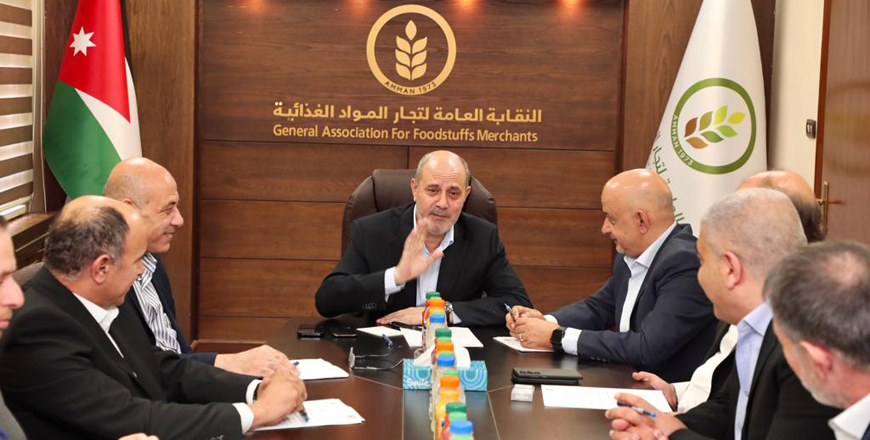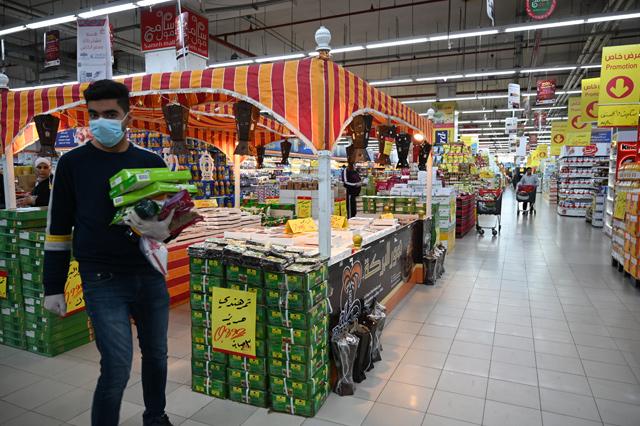You are here
Food and Ramadan necessities are available in ‘big quantities’ for local marketplace — GAFJO
By Bahaa Al Deen Al Nawas , Petra - Apr 22,2020 - Last updated at Apr 22,2020
AMMAN — Food and Ramadan necessities are available in “big quantities” for the local marketplace, Head of the General Association for Foodstuffs Merchants of Jordan (GAFJO) Khalil Haj Tawfiq said on Wednesday.
Tawfiq urged citizens to avoid rushing and crowding to purchase their needs, especially under the exceptional circumstances the Kingdom is going through in light of the coronavirus pandemic, in order to preserve the health and safety of all, the Jordan News Agency, Petra, reported.
Prior to the total curfew, Tawfiq called for extending working hours to ease the supply process and allow producers and importers to distribute to shops early and give citizens ample time to purchase products without having to form long queues in front of grocery shops and malls.
In regards to movement, he said that there needs to be a way to issue new permits related to fresh products in cooperation with the concerned people in the foodstuffs sector to overcome issues related to supply, especially since demand in Ramadan increases for vegetables, fresh chicken and red meat, ensuring that supply and demand are balanced to keep prices stable.
Tawfiq, who is also president of the Amman Chamber of Commerce, said there was a slight increase in prices in regards to some legumes and beans following an increase in their prices at the country of origin and some countries banning the exportation of such products, especially Syria and Egypt, according to Petra.
The foodstuffs sector includes 14,000 organisations and companies comprising importers, wholesalers, producers and different sizes grocery shops and supermarkets, most of which are small and spread over neighbourhoods, Petra reported, noting that there are around 500 large and medium-sized shops around the Kingdom, most of which are located in the capital.
The share of large and medium supermarkets, commercial centres and hypermarkets of the local retail commerce volume amounts to 50 per cent, Tawfiq said, noting that there is a lot of competition amongst them in regards to offers and quality.
He also called on citizens to directly contact the control room of the commerce chamber and the GAFJO in case they face any problems during the holy month of fasting.
Hanadi Salem, a housekeeper in Zarqa, told The Jordan Times on Wednesday over the phone that she witnessed an increase in prices of vegetables and fruits compared to before the crisis and some other basic commodities, especially humus and beans.
“I buy some groceries from big supermarkets early in the morning before people queue up, and if I can get what I need from smaller shops, I go for that because it is easier to avoid people in there, buying things quickly and leaving, which feels safer,” she said.
Ahmad Al Shalabi, also a Zarqa resident, said that he usually buys his needs through offers whenever possible, noting that during the current conditions it has become harder to provide for his three children, especially since they often depend on humus and falafel.
“I usually find offers on social media from hypermarkets and as soon as I find a viable offer, I go for it, and I always wear a face mask and gloves, and avoid standing near any people when I get there,” he added.
“People used to eat excessively in previous years during Ramadan after having fasted from dawn to dusk, and I hope this year people will be sensible enough to only eat what they need and be moderate, a habit that we need to live by during Ramadan and after in light of the current circumstances,” Ahmad’s brother Wael said.
Related Articles
AMMAN — Minister of Industry, Trade and Supply Yousef Shamali on Saturday commended the role of foodstuff importers and traders in securing
AMMAN — Head of the General Association for Foodstuffs Merchants in Jordan (GAFJO) Khalil Haj Tawfiq on Saturday affirmed that the food sect
AMMAN — Head of the Foodstuff Traders Association Khalil Haj Tawfiq has affirmed that the food sector is ready to welcome the holy month of













